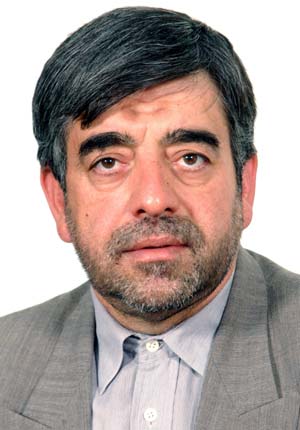Mohammad Qomi told PIN the government enforced the law on smart card use at due time, May 22, and it had to start rationing petrol within the next few days.
“We have to help the government enforce all ratifications and let the rationing law be put into practice without any trouble,” said the lawmaker.
He expressed hope the government would define the gasoline quota and price by June 5.
Gasoline price in
Interior and petroleum ministries in a joint statement announced the new conditions of gasoline supply.
Petrol is supplied only with smart card as of May 22, reads the statement.
Few car owners who have not yet received their smart cards need to call on the distribution centers immediately, it continues.
Some gas stations have been selected by Petroleum Ministry to supply gasoline with emergency smart card for a limited period of time.
The date of rationing and the petrol quota for a car will be announced later.
According to the Budget Law for the Iranian year 1386 (started
The minister, who made the statement on the sidelines of the inauguration ceremony of Maroun 3 gas pressure station, added petrol was supplied in all filling stations with smart card from May 22.
He expressed hope all smart cards would be distributed by June 7 and the rationing would take effect at that date.
Last March, Majlis approved that the government could sell rationed gasoline at 1,000 rials (10.8 cents) per liter through smart cards as of May 22. The lawmakers also authorized the cabinet to determine the price of gasoline sold in excess of the rationed quota.
The cabinet was to define the rationed gasoline quota Sunday and the officials have yet to make the final decision on the date of rationing.
Fuel smart card distribution would come to an end within 10-15 days and rationing would take affect at the time, he told reporters on the sidelines of an open session of Majlis.
“All filling stations have been equipped with smart card systems and more than 90 percent of stations have become operational,” said the minister.
Asked about the reason behind the increase of petrol to 1,000 rials (10.8 cents) per liter ahead of rationing, he said the price had been determined for a liter of rationed gasoline, however Majlis Speaker Gholam-Ali Haddad-Adel Monday urged the cabinet to enforce the new rate as of May 22 according to Majlis ratification, arguing that rationing and price were totally separate issues.
Petrol quota would be announced twice a year, said the top official, adding, “For the current year, two quotas have been determined for every five months.”
The managing director of National Iranian Oil Refining and Distribution Co. (NIORDC) Tuesday predicted that the country’s daily gasoline consumption would fall to 60-62 million liters from current 80 million liters when the rationing plan was enforced.
Mohammad-Reza Nematzadeh, also the deputy petroleum minister, added the rationing plan was finalized in the cabinet and petrol quotas would be announced soon.
Fuel smart cards would be issued for all public transports under direct supervision of Interior Ministry, said the official, adding all gasoline-fueled vehicles’ need would be met.
There were 8.3 million cars in the country, out of which 2.3 million belonged to the public service, 150 thousand to the government, and the rest were personal automobiles, he said.
Petrol quota for the public service would be higher than their average daily use, he added.


Your Comment